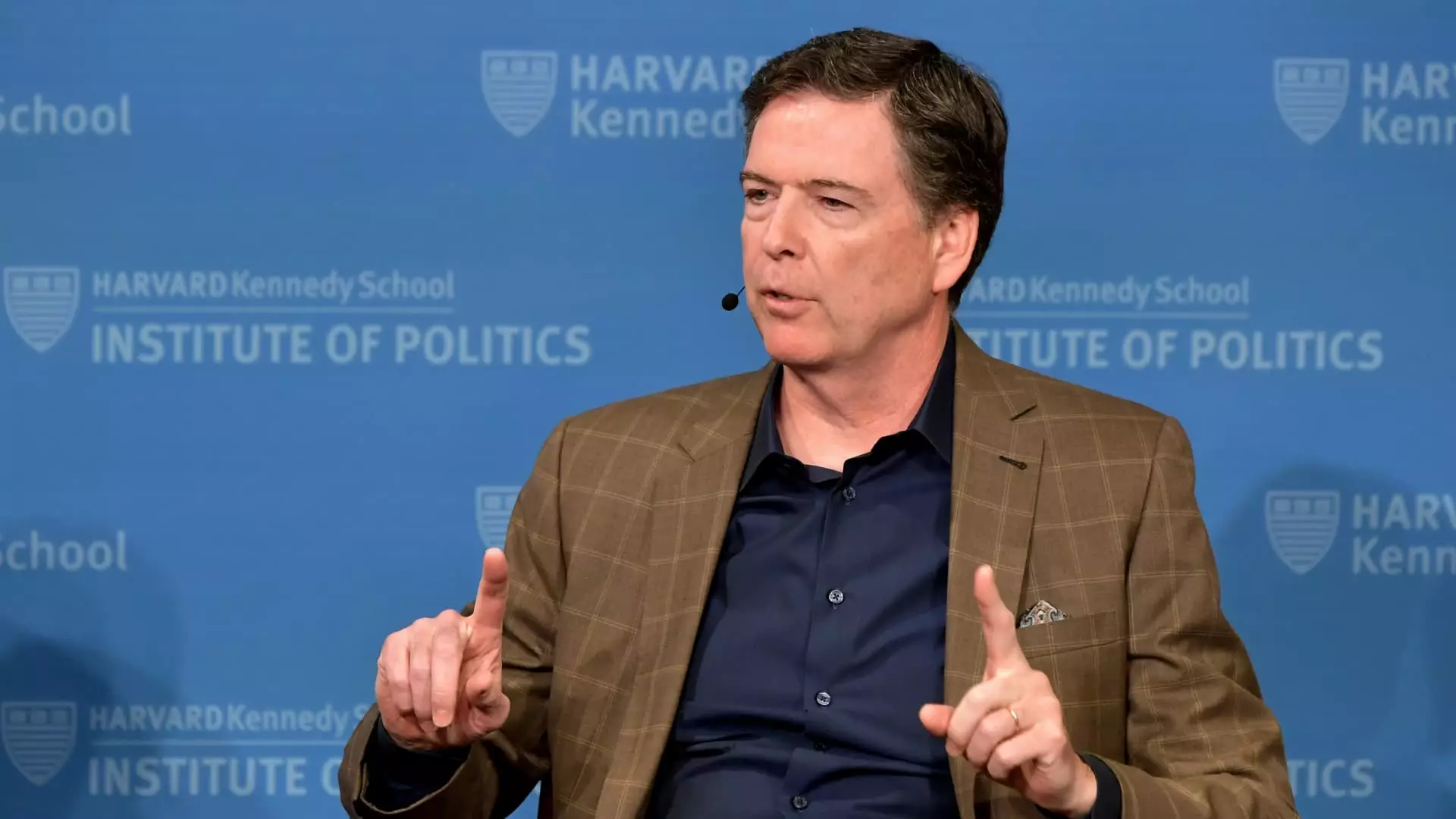The digital landscape has become a battleground for political tirades and vitriol, and the recent Instagram post by former FBI Director James Comey has escalated the stakes to an alarming level. His seemingly innocuous photo accompanied by a cryptic numerical message has ignited outrage and concern among both Republican lawmakers and Democratic allies. The social media post, which has since been deleted, features what Comey referred to as a “shell formation” on a beach resembling the numbers “8647.” However, many interpreted this as a call to action against President Donald Trump—an interpretation that has mobilized government agencies for an investigation. It’s a reflection of the chaotic nature of contemporary political discourse, where every word carries the potential for explosive backlash.
The Alarm Bells of Rhetorical Warfare
Homeland Security Secretary Kristi Noem did not mince words when she labeled Comey’s post as a blatant incitement to violence. Her declaration—that Comey was “calling for the assassination” of the president—sends a chilling message regarding the seriousness of rhetoric in today’s hyper-polarized climate. The escalating discourse surrounding Comey’s post underscores a critical issue: the language used by public figures can have profound implications. The Secret Service’s decision to investigate further exemplifies how deeply words can resonate and how they may incite potential threats to officials meant to be protected.
What complicates this scenario further is the immediate backlash from Trump’s advisors and family, including Donald Trump Jr., who described Comey’s message as indirectly calling for harm against his father. This situation also reflects a larger trend where political figures and their supporters are hyper-sensitive to perceived attacks, often escalating situations rather than promoting dialogue. Does this mean we live in a world where simple metaphors can lead to investigations? It sure seems that way.
Comey’s Defense: Ignorance or Denial?
In an attempt to navigate the storm of condemnation, Comey has stepped forward to issue a defense, claiming ignorance regarding the potential interpretation of his post. He stated he did not realize some individuals might associate the number “8647” with violence. Comey’s reasoning, while intended to portray innocence, raises significant doubts. Given the environment in which he operates and his experience within federal law enforcement, can we genuinely accept that he overlooked such a precarious implication?
As citizens, we must question if leaders who fail to recognize the weight of their words are fit to hold public office, especially in a time where the stakes are higher than ever. Rhetoric can inspire action, evoke emotions, and even prompt violence. For a figure like Comey—who was at the helm of the FBI during one of the most politically charged investigations in recent history—to dismiss the potential fallout of his words is unsettling. It casts a shadow over his credibility and accountability.
The Broader Implications: A Political Crisis
With the rise of social media as a platform for instantaneous communication, narratives have become twisted and manipulated, often fueling political hostilities. The combination of misinformation and incendiary language creates a dangerous synergy, affecting not just individual citizens but the very system that governs them. The political climate in the United States is already fraught with tension, marked by deep ideological divides. Comey’s post, whether intentionally or not, serves to exacerbate an already volatile situation, igniting emotions and suspicion on both sides of the aisle—an outcome that can only be labeled as detrimental to civil discourse.
Additionally, the reaction from Republican figures calling for Comey’s arrest offers a disturbing glimpse into a system increasingly characterized by personal vendettas rather than a commitment to public service. Calling for somebody’s arrest based on their social media output blurs the lines of free speech and turns political contention into a dangerous game of retaliation. It is an alarming trend that threatens to undermine democratic foundations, which hinge on debate rather than escalation. In a liberal democracy, open conversation and dissent are essential components, yet we find ourselves shackled by growing hostility.
The lesson is clear: the stakes of language, especially from influential figures, cannot be overstated. Every post, tweet, and utterance has the potential not only to inspire dialogue but also to incite fear and division. And while Comey may view his actions as benign, the repercussions reflect a society on the precipice of chaos—a society that needs to tread carefully in a world where words have become weapons in a political war.


Leave a Reply